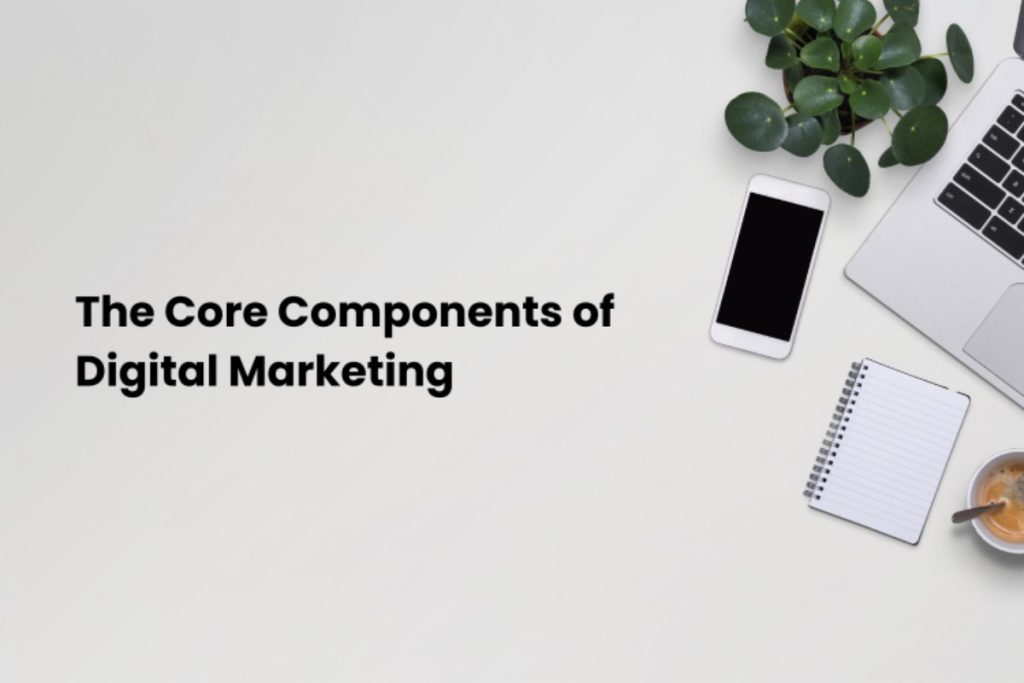Digital Marketing has become an integral part of modern business strategies, allowing organizations to reach and engage with their target audiences in new and innovative ways. As the digital landscape continues to evolve, understanding the core components of digital marketing is essential for businesses seeking to leverage its full potential. In this blog, we’ll explore the key components of digital marketing and their significance in today’s digital era. Additionally, we’ll touch upon the relevance of Digital Marketing Courses and provide an overview of digital marketing as a discipline.
Table of Contents
· What is Digital Marketing?
· Core Components of Digital Marketing
· The Importance of Digital Marketing Courses
· The Future of Digital Marketing
· Conclusion
Table of Contents
What is Digital Marketing?
All digital marketing initiatives that use digital platforms and technologies to communicate with present and potential clients are included in the digital marketing category. It uses social media, mobile devices, search engines, the internet, and other digital platforms to advertise goods, services, and brands. Digital marketing is dynamic and ever-changing, providing companies with new methods to interact with their target markets and assess the success of their advertising initiatives.
Core Components of Digital Marketing
Content Marketing: To draw in and hold on to a well-defined audience, content marketers produce and disseminate useful, pertinent, and consistent information. Its goal is to generate lucrative customer action by offering helpful information and establishing the legitimacy and trust of the brand.
Search Engine Optimisation (SEO): SEO optimises a website to rank higher in search engine results pages (SERPs) organically. Boost exposure and generating organic traffic entails refining the content of websites, their structure and navigation, and obtaining backlinks from other websites.
Social Media Marketing: Social media marketing involves using social media platforms like Facebook, Twitter, LinkedIn, Instagram, and others to promote products and services. It entails tasks including content creation and sharing, interaction with followers, paid advertising campaigns, and social media metrics analysis.
Email marketing: Email marketing sends promotional emails to a list of recipients. It is employed to market goods, services, occasions, deals, and promotions to specific audiences, frequently to boost revenue, cultivate client loyalty, and raise brand awareness.
Pay-Per-Click Advertising (PPC): PPC advertising is a digital marketing model where advertisers pay a fee each time their ad is clicked. It is a method of purchasing website visits instead of obtaining them naturally, and it may be very successful in generating traffic and conversions immediately.
Analytics and Data Analysis: Analytics and data analysis are essential components of digital marketing, as they provide insights into the performance of marketing campaigns. Marketers may optimise their plans and make well-informed decisions by analysing data from several digital channels to achieve superior outcomes.
The Importance of Digital Marketing Courses
Courses on digital marketing are essential for helping professionals and companies comprehend and successfully use the fundamentals of the field. Digital marketing strategies, content production, SEO tactics, social media management, email marketing best practices, PPC advertising, and data analytics are just a few of the subjects covered in these courses. Students can gain the abilities and information required to thrive in today’s cutthroat digital environment by enrolling in courses in digital marketing.
The Future of Digital Marketing
The future of digital marketing is full of exciting possibilities as long as digital technologies continue to advance. The future of digital marketing will be shaped by new trends and technologies covered in this area, including voice search, augmented reality (AR), artificial intelligence (AI), and data privacy laws. Businesses may stay ahead of the curve and modify their digital marketing strategies to match their audiences’ changing demands and expectations by thoroughly understanding these trends and their ramifications.
Conclusion
Businesses hoping to prosper in the digital era must comprehend the fundamentals of digital marketing. Businesses may successfully connect and interact with their target audiences, generate traffic and conversions, and eventually accomplish their marketing objectives by utilising the power of content marketing, SEO, social media, email marketing, PPC advertising, and data analytics. Digital marketing courses are essential in equipping people and companies with the know-how required to successfully traverse the intricacies of digital marketing and thrive in the modern digital economy.

Review The Core Components of Digital Marketing. Cancel reply